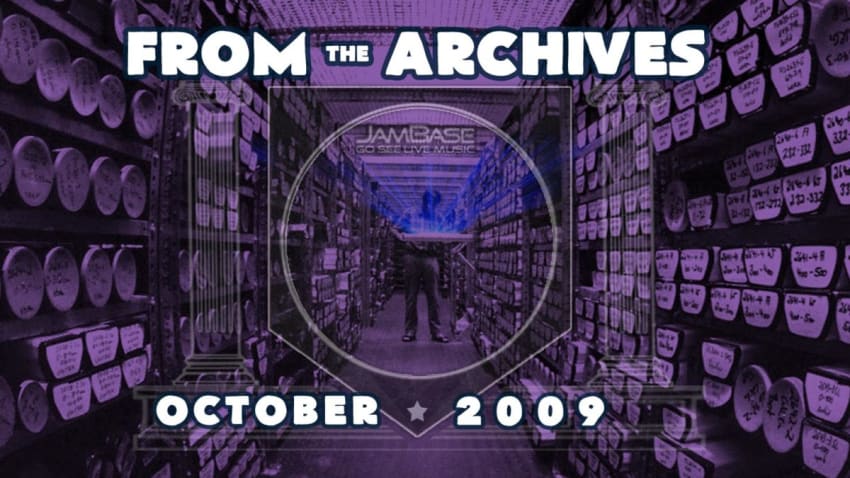Sila and the Afrofunk Experience: Black President
By Team JamBase Oct 26, 2009 • 12:03 pm PDT

 “Mr. President, I got something to say/ People are hungry for change,” sings Victor Sila in “Black President,” the title track of his band’s latest album. “I am change. You are change. We are change.” To be sure, Sila and the Afrofunk Experience know the importance of political and cultural change, as well as the possibilities of music as a tool for bringing it about.
“Mr. President, I got something to say/ People are hungry for change,” sings Victor Sila in “Black President,” the title track of his band’s latest album. “I am change. You are change. We are change.” To be sure, Sila and the Afrofunk Experience know the importance of political and cultural change, as well as the possibilities of music as a tool for bringing it about.
Raised in Kenya by his grandmother, Victor Sila Mutungi was introduced to Western music at a young age. After listening to a series of Christian sermons broadcast on the Voices of America network – a requirement of his devout grandmother – Sila immersed himself in the ’70s funk and soul classics of the pop-music program that followed. Though grandma dismissed it as the work of the Devil, Sila paid close attention and assimilated the music’s vocal harmonies, earthy rhythms, and raw emotion.
He would later discover Afrobeat godfather Fela Kuti, and Funkiest Man in Africa, the first album from Sila and the Afrofunk Experience, ably blended American funk and soul with Afrobeat and Pan-African percussion. On Black President (Visila Records), the band delves further into Western elements – particularly Motown and hard Funkadelic style funk – and advances a more overt political message. The album cover, a painting of a young, casually dressed Barack Obama cradling the African continent in his hand, sets the tone.
“Shelter” launches the album with unflagging energy, from the opening horn blast to Sila’s piercing yells and ululating freakouts. He establishes himself as a versatile lead singer, unafraid to push the upper registers with spontaneous yelps and powerful, screeching voiced punctuation marks. The syncopated rhythm, driven by Bennie Murray on drums and Wendell Rand on bass, winds tightly throughout the melody, but it’s all about Sila’s vocals and the overwhelming horns, with the trumpet of Mike Pitre taking the lead (a pattern that continues throughout the album).
“Beauty Queen” slides into a more Latin-flavored mode, with multiple female vocal responses to Sila’s sultry delivery. The relentlessly positive “Africa” is reminiscent of Orchestra Baobab, and the free-flowing Caribbean beat and soft percussion accents demand beach or poolside listening.
On “Chrome,” Sila turns in his most intriguing vocal performance, as his high-pitched screams (“I’m freaking OUT!”) complement and punctuate the cool, hepcat flow of the melody. Think of the well-constructed yet laid-back neo-soul of rock quintet Townhall, with James Brown and Prince trading improvisations over the top.
“Thief in the House” most accurately demonstrates the band’s indebtedness to Kuti. The loping rhythm sets a rock-solid baseline for Sila’s raps about political bribery and the continued repression of the poverty-stricken citizens of African nations. “What Makes You Laugh Makes You Cry” echoes “Thief” in its structure and lyrical content (“mothers, on their knees, asking, ‘Have you seen my child?'”) and proves to be the catchiest track.
The album’s main stumble is “You Love You,” a heavy-handed, reggae-drenched song about the necessity of loving yourself before accepting love from someone else. It takes the earnestness quotient – usually an asset for this band – over the line. Black President ends with “I’m So Tired,” a fiery but overlong summation of the band’s activist message. In typical Afrobeat fashion, the jaunty beat undulates beneath Sila’s boisterous proclamations that he’s tired “of the television…of CNN…of people calling Africa the black continent…of people stealing from Africa…all this bullshit, all this corruption shit, all this genocide shit.”
His point is obvious and plainspoken: “No time for love/ We make no time for family,” adding, “No time to say hello/ No time to say I love you/ No time for truth.” It’s an important and timely notion, and the driving momentum of the band provides a fitting forum for Sila’s message.
JamBase | Worldwide
Go See Live Music!
